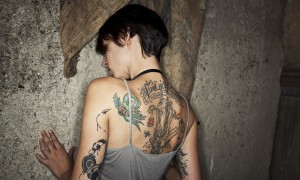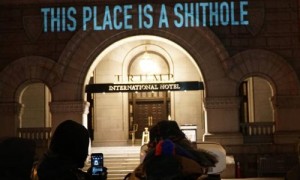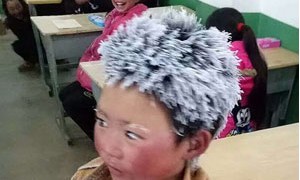Basic Information
Chinese name: gay
Aliases: Fen Tao, Long Yang, Broken Sleeve, etc.
Foreign name: gay and BL
Definition: love between men
Identity
Gay men are identified by the pink triangle, the inverted pink triangle used by the Nazis to identify gay prisoners during the Holocaust. The logo was later used as a symbol for Gay Pride and the Gay Rights Movement, and it is also the most popular gay symbol besides the rainbow flag. Legally defined, the term "gay" tends to be attributed to sexual relations between men. The process of homosexuality identification varies from person to person. Some people realize that they are attracted to men during adolescence, while others realize their homosexual tendencies after adolescence (eg, after entering a social marriage).
Western etymology
The term homosexual is a modern concept. The word first appeared in an article by the Hungarian writer Karl-Maria Kertbeny.
history
In the late 19th century, the German Empire enacted a new constitution that punished men who had sex with men between one and four years in prison. Karl Maria Kolter Bailey wrote an article criticizing and resisting the decree and coined the word "homosexual" for the first time to replace the derogatory term "pederast" (sodomy), which was widely used at the time. Karl Maria Kortberly hoped that his new term and interpretation of it would be helpful in repealing Section 175 of the German Reich's Criminal Code, which was still passed and implemented in 1871. 60 years later, it became the legal source of the Nazi government's murder of homosexuals. The word "homosexual" is directly translated to mean "homosexual", derived from the Greek prefix "homo-" (meaning "same") and the Latin root "sex" (meaning "sex"). Other terms referring to homosexuality, such as "homophilia" and "inversion", are no longer in use. The term was later embraced by German psychiatrist Richard Freiherr von Krafft-Ebing (1840-1902) and other physicians, author of Psychopathia Sexualis (Psychopathia Sexualis), And use it as a medical term in pathological diagnosis methods.
History
With the emergence and development of psychology, "homosexual" began to become a term used to refer to a mental illness in medical clinical research. For this reason, the term "homosexual" was considered a slur by homosexuals until the American Psychiatric Association removed "homosexual" from its list of mental illnesses in 1973. As a result, Western homosexuals rarely use the term "homosexual" to refer to themselves and same-sex sexuality. Later, the cryptic term "gay" became popular and recognized by homosexuals, becoming a more appropriate name for homosexuality. The English word "gay" originally means "feeling happy" and "making people happy", but the original changer is no longer available.
In the 19th century, prostitutes began to be dubbed "gay women", and at the same time people called "gay" playboys who were idle. At the beginning of the 20th century, some homosexuals in the United States began to use the word "gay" as their own label to distinguish it from the word "homosexual", which was widely used in pathology and clinical practice. In the 1960s and 1970s, the American gay community strongly urged various media to replace "homosexual" with "gay" when reporting and broadcasting news involving homosexuality. In response, the term "gay" began to be gradually accepted and used by the media. But in fact, this is also a very long process. For example, it was not until 1989 that the New York Times, one of the mainstream media in the United States, finally accepted the word "gay" to refer to homosexuality.
status quo
"gay" is often used to refer to gay men, while for lesbians, due to the influence of second-wave feminism, "lesbian" is more used, which is derived from a small island in ancient Greece. Name Lesbos (Lesbos Island). Located in the Aegean Sea near the northwestern coast of Turkey, this small island is rocky and was an important settlement for the Aeolians. In the 7th century BC, Lesbos was famous for its lyric poets. Among these poets, the most famous is the lesbian poet Sappho (Ancient Greek: Σαπφώ; Latinized: Sappho, about 630 or 612 BC to about 592 or 560 BC). "Lesbian" originally meant the people who lived on the island, but since Sappho, the word "Lesbian" began to have a new meaning. In the late 19th century, the medical profession began to use "lesbian" to refer to women who had the same sexual orientation as Sappho. Since then, "lesbian" has come to include lesbian connotations and has been widely used. Other English terms for homosexuality, such as "fag", "faggot", "homo" and "dyke", are derogatory pronouns for homosexuals. The word "queer" to address the LGBT community was originally a derogatory term, but with the use within the LGBT community, the word began to be recognized by the LGBT community, but not everyone accepted the term.
Chinese etymology
In ancient Chinese history, there was no such thing as "gay men".
history
"Broken Sleeve": According to the "Han Shu: Ning Xing Biography", Emperor Ai of Han and Dong Xian slept together. Dong Xian pressed the emperor's sleeve, and the emperor couldn't bear to wake him up and broke his sleeve. "Longyang": In "Warring States Policy, Wei Ce", it is recorded that Lord Longyang was the pillow seat of King Wei. "Yu Tao" and "Separation of peaches": Mi Zixia and Wei Ling shared peaches and ate them. Mi Zixia once stole the king's chariot and committed the crime. When Mizixia was old, Duke Ling of Wei asked Mizixia about his sins and said, "I have tried to steer my chariot, and I have tasted my remaining peaches." There are other words such as "male style", "male sex", "walking the dry road" and "rabbit" to euphemistically refer to the phenomenon of male homosexuality. In Li Yu's "Flesh Pouf", it is recorded that the children's book and the scabbard, "Both characters are equally charming, and their appearance is the same as that of a beautiful woman."
History
In modern spoken Chinese, the word "comrade" has gradually evolved into a social term for LGBT (lesbian, gay, bisexual, transgender) and an official term between the community (for example, "Taiwan Gay Advisory Hotline Association" "group), but in other contexts the original meaning of the word remains the same. Some people also use the more neutral, neutral synonym of "homosexuality". In addition, in Hong Kong and Macao Cantonese, the "base" derived from the English word gay is used to refer to homosexuality. But the term usually has a derogatory connotation. Taiwanese people commonly call gay men "fake" or "jia" because of the homophonic pronunciation of "fake" and "gay" in Taiwanese. Other terms include "glass" and so on. In some regional dialects, gay men are also called "Piao Piao". In the Fujian area of Guangdong, there is also the title of brother-in-law, which is transformed from sworn brothers and contains homosexuality. Due to the stigmatization of sworn brothers, among sworn brothers, the elders call the younger ones as sires.
status quo
With the advent of the Internet and gay bars, more Chinese words emerged within the gay community. These terms are often unfamiliar to people in the non-gay community. For example, in Taiwan, Motss (Member Of The Same Sex) is usually used on a network system such as BBS. Gay men have their own set of nouns and expressions they use. For example, the more common term in Taiwanese gay culture term is "C goods", which is derived from the English "Sissy" and "Nancy", which refers to gay men with a feminine temperament; Macho Queen (King Kong Barbie) refers to a very masculine appearance and a body A sturdy, but vaguely feminine, gay man in action and thought. In addition, just like the "top" and "bottom" of lesbians, Taiwanese gay men are generally divided into two types: "attack" (also called 'brother') and "shou" (also called 'brother'). Role.
However, the main difference between the two is not the degree of femininity or masculinity, but the concepts of protection and dependence, but generally speaking, the distinction is not obvious and has no firm definition, and it is mainly men who exclude feminine temperament. In addition, there are also implicit terms among gay men to distinguish objects by body shape. Such terms usually refer to animals to describe the appearance of themselves or their subjects; "monkey" refers to a male who is relatively feminine, petite, and thin in appearance, "wolf" refers to a lean, masculine male, and "bear" refers to a tall, Strong, rough-looking, bearded men, "pig" is used to refer to chubby men, either fair or rough in appearance, but because the word "pig" has a derogatory connotation and is excessively directed against criticism The appearance of others means, so there is another "fat bear" title. In addition, because Ang Lee's film "Brokeback Mountain" won the Oscar, the word "broken back" has also become another name for homosexuality.
Overview
The percentage of homosexuality varies across regions and historical periods. Sometimes there are more homosexuals than heterosexuals. In ancient Greece, it was generally believed that same-sex love was true love, and this was reflected in Platonic love. However, in medieval Europe, under the influence of Christianity, homosexuality was once opposed. In ancient China, the masculine style that reflected male love was once prevalent, and there were well-known allusions such as broken sleeves. In the old days, male relationships were often referred to as foreign affairs, and between same-sex friends, they could be called lovers. In modern times, under the influence of Western Christian culture, homosexuality was once considered a psychological disorder. With the development of the times, this fallacy has been clarified. In order to meet the needs of different groups of people, some countries and regions have adopted same-sex marriage, reflecting the diversified development of modern marriage. The English name of gay men is gay, gay originally means "happy, joyful, carefree", and its etymology is the Old French word gai, which first appeared in English in the 12th century.
A famous Australian nursery rhyme has the lyrics "gay your life must be", so "happy boys" can be translated as "gay boys". After the 21st century, under the influence of the Internet and other environmental factors, some new popular words such as "gay", "handsome guy", "comrade" and "homosexual" have become more and more popular. They compare themselves to "gentleman" and "raven jack". "Wait, socializing or in a bar between male friends. Coupled with the popularity of films such as "Love of Siam" in China in 2008, it has also sparked a gay romance. Gay men are also commonly referred to as gays, gays, etc. In Cantonese, "eng" and "stir" are homophones, and "base" and "GAY" are homophones, so the Cantonese area calls gay men "gay", homosexual behavior is called "gay", and is also called "comrade", "gay" Glass", "Jiyou", etc. In modern colloquialism, "comrade" is often used to refer to homosexuals. In addition, after Cantonese absorbed the English word gay, it used "base" to refer to homosexuality.
concept
People who have love, sexual desire or admiration for the same sex are called homosexuals. After gay people marry, their same-sex orientation may change. Homosexuality, heterosexuality, etc. are all modern concepts from the West. In traditional Chinese culture, there is no deliberate distinction between sexual orientations, but rather let nature take its course. Same-sex relationships in different historical periods have their own characteristics, and it is impossible to directly correspond to modern "homosexuality" one-to-one. There is a difference. In many ancient writings, one can get a glimpse of what people thought about homosexual love. In the Fujian area during the Ming and Qing Dynasties, a brotherhood relationship similar to same-sex marriage was born. In contemporary times, some homosexuals also choose to marry the same sex.
Family
Lin Yifeng, Hong Kong singer Huang Yaoming, a well-known musician in Hong Kong, the founder of the crowded music label, publicly admitted his homosexuality in the 2012 concert. Ricky Martin, Puerto Rican Latin singer Adam Lambert, a famous American pop singer, came out in an interview with Rolling Stone magazine in 2009. Mark Fairhely, Westlife member Jim Parsons, American TV and film actor, "The Big Bang Theory" star Wu Tong, Hong Kong singer-songwriter George Takei, Japanese-American actor Anderson Cooper, American CNN anchor Rui En Murphy, writer, director, and producer Troye Sivan, an Australian young lady who played Wolverine in "X-Men". once came to Hunan, China to participate in the "Everyday Upward" program.
Lee Daniels, American actor Ian McKellen, American actor Guillermo Díaz, actor Maulik Pancholy, actor " and other plays Denis O'Hare (Denis O'Hare), actor Steve Grand (Steve Grand), musician, Kyle Abraham (Kyle Abraham), the first openly gay singer in the country Abraham, choreographer and dancer Joe Mantello, director and actor Victor Garber, actor Paul Iacono, actor Andrew Scott Andrew Scott), actor who played Moriarty in Sherlock, now out John Barrowman, actor Neil Patrick Harris, American actor Matt Bomer, American actor sam smith, british singer
Chen Zhiquan in the political world, the host of Hong Kong TV and radio programs, and the chief executive of Hong Kong People.com. He is the first legislator in Hong Kong to publicly admit to being gay, and the mayor of Campbell, California, USA, and the youngest Asian mayor in the United States. Youngest openly gay mayor. Milk, a San Francisco city official. Elio Di Rupo, Prime Minister of Belgium
Sports Jason Collins: NBA veteran Matthew Meacham, Australian diver Johnny Weir, American men's figure skater Gareth Thomas, British rugby star Thomas Daly, British diver.
Academia Nate Hilven, statistician and author Jack Andraka, who invented the cancer test strip won the first prize at the Intel International Science and Engineering Fair.
Pete Sissam in tech, Chris Hughes, CEO of Toktumi, Tim Cook, co-founder of Facebook, CEO of Apple. Peter Thiel, early Facebook investor and founders fund partner Tom Coates (Tom Coates), former head of product at Yahoo Briehouse Labs Joel Simhay, dating app Grindr founder Jason Goldberg Jason Goldberg, Fab CEO and co-founder Jon Hall, executive director of Linux International Alan Mathison Turing, a famous British mathematician, logician, and cryptographer, known as The father of computer science and artificial intelligence.
Fashion/design Thom Browne, fashion designer Marc Jacobs, fashion designer Tom Ford, designer Richard Buckley, former editor-in-chief of Vogue Hommes[3] Calvin · Klein, Calvin Klein founder.
Business world simon halls, CEO of Hollywood Economics.








